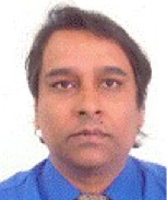
Professor (Dr.) Rajendra Parsad GUNPUTH
Personal Chair in International Comparative Law, University of Mauritius, Mauritius
rpgunput@uom.ac.mu
Tertiary institutions are more and more encouraging their own academics to embark on their MPhil/PhD thesis at a time where candidates for the post of academics in any institution on the island are already oversaturated with holders of undergraduate and postgraduate degrees from top-universities (UK, South Africa, France, Singapore, Malaysia, India or Mauritius). Therefore, one important criterion for recruitment and selection of academics in our tertiary institutions actually is spear-headed towards publications in five stars journals and the number of research publications. In addition, Ph.D. holders shall demonstrate their willingness to embark on research and publication as well. Over and above, for academics who wish to climb the promotion ladder, there is no other option than to publish or perish. Consequently, there is a sort of ‘rat race’ for publication in top research journals coupled with conference proceedings, to be able to overcome these hurdles to achieve success in terms of learning, pedagogy, popularity and even in terms of remuneration. However, the other side of the coin, and just too bad, is that there are more and more research questions as to plagiarism, lack of creativity and innovation that have dealt a legal blow in terms of research integrity among some researchers, scholars, and academics in the context of the Mauritian tertiary education. The aim of this editorial review is to reflect among scholars and researchers to what extent research and research integrity are important for the advancement of knowledge for the benefit of mankind worldwide but in strict compliance with rules and regulations, policies and legislation. I am not saying that this is the latest development in the field of education under the umbrella of social sciences and humanities. What I am trying to underline is that plagiarism, as a form of misconduct, is a new paradigm and even is included in the curriculum of most African top universities as a means and methods of awareness. Eventually, more and more scholars, researchers and young Ph.D. students and candidates have been caught red-handed with sufficient proof for dismissal.





